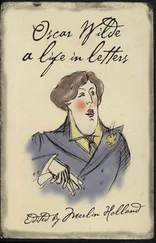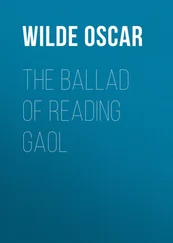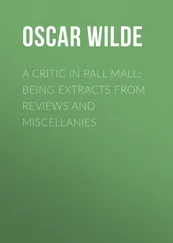Oscar Wilde - Reviews
Здесь есть возможность читать онлайн «Oscar Wilde - Reviews» — ознакомительный отрывок электронной книги совершенно бесплатно, а после прочтения отрывка купить полную версию. В некоторых случаях можно слушать аудио, скачать через торрент в формате fb2 и присутствует краткое содержание. Жанр: foreign_home, literature_19, cinema_theatre, foreign_prose, на английском языке. Описание произведения, (предисловие) а так же отзывы посетителей доступны на портале библиотеки ЛибКат.
- Название:Reviews
- Автор:
- Жанр:
- Год:неизвестен
- ISBN:нет данных
- Рейтинг книги:3 / 5. Голосов: 1
-
Избранное:Добавить в избранное
- Отзывы:
-
Ваша оценка:
- 60
- 1
- 2
- 3
- 4
- 5
Reviews: краткое содержание, описание и аннотация
Предлагаем к чтению аннотацию, описание, краткое содержание или предисловие (зависит от того, что написал сам автор книги «Reviews»). Если вы не нашли необходимую информацию о книге — напишите в комментариях, мы постараемся отыскать её.
Reviews — читать онлайн ознакомительный отрывок
Ниже представлен текст книги, разбитый по страницам. Система сохранения места последней прочитанной страницы, позволяет с удобством читать онлайн бесплатно книгу «Reviews», без необходимости каждый раз заново искать на чём Вы остановились. Поставьте закладку, и сможете в любой момент перейти на страницу, на которой закончили чтение.
Интервал:
Закладка:
(1) Astray : A Tale of a Country Town . By Charlotte M. Yonge, Mary Bramston, Christabel Coleridge and Esmé Stuart. (Hatchards.)
(2) Betty’s Visions . By Rhoda Broughton. (Routledge and Sons.)
(3) That Other Person . By Mrs. Alfred Hunt. (Chatto and Windus.)
(4) A Child of the Revolution . By the Author of Mademoiselle Mori . (Hatchards.)
(5) Aphrodite . Translated from the German of Ernst Eckstein by Mary J. Safford. (New York: Williams and Gottsberger; London: Trübner and Co.)
A POLITICIAN’S POETRY
( Pall Mall Gazette , November 3, 1886.)
Although it is against etiquette to quote Greek in Parliament, Homer has always been a great favourite with our statesmen and, indeed, may be said to be almost a factor in our political life. For as the cross-benches form a refuge for those who have no minds to make up, so those who cannot make up their minds always take to Homeric studies. Many of our leaders have sulked in their tents with Achilles after some violent political crisis and, enraged at the fickleness of fortune, more than one has given up to poetry what was obviously meant for party. It would be unjust, however, to regard Lord Carnarvon’s translation of the Odyssey as being in any sense a political manifesto. Between Calypso and the colonies there is no connection, and the search for Penelope has nothing to do with the search for a policy. The love of literature alone has produced this version of the marvellous Greek epic, and to the love of literature alone it appeals. As Lord Carnarvon says very truly in his preface, each generation in turn delights to tell the story of Odysseus in its own language, for the story is one that never grows old.
Of the labours of his predecessors in translation Lord Carnarvon makes ample recognition, though we acknowledge that we do not consider Pope’s Homer ‘the work of a great poet,’ and we must protest that there is more in Chapman than ‘quaint Elizabethan conceits.’ The metre he has selected is blank verse, which he regards as the best compromise between ‘the inevitable redundancy of rhyme and the stricter accuracy of prose.’ This choice is, on the whole, a sensible one. Blank verse undoubtedly gives the possibility of a clear and simple rendering of the original. Upon the other hand, though we may get Homer’s meaning, we often miss his music. The ten-syllabled line brings but a faint echo of the long roll of the Homeric hexameter, its rapid movement and continuous harmony. Besides, except in the hands of a great master of song, blank verse is apt to be tedious, and Lord Carnarvon’s use of the weak ending, his habit of closing the line with an unimportant word, is hardly consistent with the stateliness of an epic, however valuable it might be in dramatic verse. Now and then, also, Lord Carnarvon exaggerates the value of the Homeric adjective, and for one word in the Greek gives us a whole line in the English. The simple εσπεριος, for instance, is converted into ‘And when the shades of evening fall around,’ in the second book, and elsewhere purely decorative epithets are expanded into elaborate descriptions. However, there are many pleasing qualities in Lord Carnarvon’s verse, and though it may not contain much subtlety of melody, still it has often a charm and sweetness of its own.
The description of Calypso’s garden, for example, is excellent:
Around the grotto grew a goodly grove,
Alder, and poplar, and the cypress sweet;
And the deep-winged sea-birds found their haunt,
And owls and hawks, and long-tongued cormorants,
Who joy to live upon the briny flood.
And o’er the face of the deep cave a vine
Wove its wild tangles and clustering grapes.
Four fountains too, each from the other turned,
Poured their white waters, whilst the grassy meads
Bloomed with the parsley and the violet’s flower.
The story of the Cyclops is not very well told. The grotesque humour of the Giant’s promise hardly appears in
Thee then, Noman, last of all
Will I devour, and this thy gift shall be,
and the bitter play on words Odysseus makes, the pun on μητις, in fact, is not noticed. The idyll of Nausicaa, however, is very gracefully translated, and there is a great deal that is delightful in the Circe episode. For simplicity of diction this is also very good:
So to Olympus through the woody isle
Hermes departed, and I went my way
To Circe’s halls, sore troubled in my mind.
But by the fair-tressed Goddess’ gate I stood,
And called upon her, and she heard my voice,
And forth she came and oped the shining doors
And bade me in; and sad at heart I went.
Then did she set me on a stately chair,
Studded with silver nails of cunning work,
With footstool for my feet, and mixed a draught
Of her foul witcheries in golden cup,
For evil was her purpose. From her hand
I took the cup and drained it to the dregs,
Nor felt the magic charm; but with her rod
She smote me, and she said, ‘Go, get thee hence
And herd thee with thy fellows in the stye.’
So spake she, and straightway I drew my sword
Upon the witch, and threatened her with death.
Lord Carnarvon, on the whole, has given us a very pleasing version of the first half of the Odyssey . His translation is done in a scholarly and careful manner and deserves much praise. It is not quite Homer, of course, but no translation can hope to be that, for no work of art can afford to lose its style or to give up the manner that is essential to it. Still, those who cannot read Greek will find much beauty in it, and those who can will often gain a charming reminiscence.
The Odyssey of Homer . Books I. – XII. Translated into English Verse by the Earl of Carnarvon. (Macmillan and Co.)
MR. SYMONDS’ HISTORY OF THE RENAISSANCE
( Pall Mall Gazette , November 10, 1886.)
Mr. Symonds has at last finished his history of the Italian Renaissance. The two volumes just published deal with the intellectual and moral conditions in Italy during the seventy years of the sixteenth century which followed the coronation of Charles the Fifth at Bologna, an era to which Mr. Symonds gives the name of the Catholic Reaction, and they contain a most interesting and valuable account of the position of Spain in the Italian peninsula, the conduct of the Tridentine Council, the specific organisation of the Holy Office and the Company of Jesus, and the state of society upon which those forces were brought to bear. In his previous volumes Mr. Symonds had regarded the past rather as a picture to be painted than as a problem to be solved. In these two last volumes, however, he shows a clearer appreciation of the office of history. The art of the picturesque chronicler is completed by something like the science of the true historian, the critical spirit begins to manifest itself, and life is not treated as a mere spectacle, but the laws of its evolution and progress are investigated also. We admit that the desire to represent life at all costs under dramatic conditions still accompanies Mr. Symonds, and that he hardly realises that what seems romance to us was harsh reality to those who were engaged in it. Like most dramatists, also, he is more interested in the psychological exceptions than in the general rule. He has something of Shakespeare’s sovereign contempt of the masses. The people stir him very little, but he is fascinated by great personalities. Yet it is only fair to remember that the age itself was one of exaggerated individualism and that literature had not yet become a mouthpiece for the utterances of humanity. Men appreciated the aristocracy of intellect, but with the democracy of suffering they had no sympathy. The cry from the brickfields had still to be heard. Mr. Symonds’ style, too, has much improved. Here and there, it is true, we come across traces of the old manner, as in the apocalyptic vision of the seven devils that entered Italy with the Spaniard, and the description of the Inquisition as a Belial-Moloch, a ‘hideous idol whose face was blackened with soot from burning human flesh.’ Such a sentence, also, as ‘over the Dead Sea of social putrefaction floated the sickening oil of Jesuitical hypocrisy,’ reminds us that rhetoric has not yet lost its charms for Mr. Symonds. Still, on the whole, the style shows far more reserve, balance and sobriety, than can be found in the earlier volumes where violent antithesis forms the predominant characteristic, and accuracy is often sacrificed to an adjective.
Читать дальшеИнтервал:
Закладка:
Похожие книги на «Reviews»
Представляем Вашему вниманию похожие книги на «Reviews» списком для выбора. Мы отобрали схожую по названию и смыслу литературу в надежде предоставить читателям больше вариантов отыскать новые, интересные, ещё непрочитанные произведения.
Обсуждение, отзывы о книге «Reviews» и просто собственные мнения читателей. Оставьте ваши комментарии, напишите, что Вы думаете о произведении, его смысле или главных героях. Укажите что конкретно понравилось, а что нет, и почему Вы так считаете.












